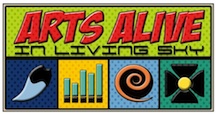Arts Ed & Action Research
What questions do we have about our practice?
What questions do our students have about their learning?
Action Research is based on your practice and stems from a question you want answered. It includes: time to reflect on your practice, support from a community of fellow researcher/teachers, keeping track of your process, reading the work of others, documenting your work - which leads to further reflection. This cycle leads one to a deeper understanding of the nature of their work and how to become even better.
Sample questions that guided our previous projects:
- What are the real benefits of an Arts Education program? How might the experience with an artist promote student ability and raise self-esteem and confidence? How does an artist build resiliency in our students and help keep them in school? Will this have residual effects in the school and the community as we build relationships with surrounding schools?
- How do we address the real problems of racism, bias and resentment that exist in our communities? How do we show our students that we value relationship? How do we erase the fear between nations? How can artists help us with methods of personal expression?
-
How does Dance impact learning? Can we observe differences when we apply kinesthetic forms of learning and practice Brain Dance techniques in the Math and English Language Arts classroom? As our understanding of Dance deepens, will it impact the way we learn in our school? As we see practical applications for Dance, will we begin to incorporate the methods into classroom practice?
The Saskatchewan Arts Board ArtsSmart, TreatySmart and Creative Partnership programs require educators to identify Action Research questions for proposals. Teachers who have practiced this approach in their classrooms see the difference in their own thinking about their practice. It builds a mechanism for deep reflection into instruction.
CAPES (Chicago Arts Partnerships in Education) is one such model of Action Research that has supported teachers as researchers and have moved to a "culture of evidence". Their model relies on artists working in the schools in partnerships.
Action Research based on the concept of a "living laboratory", in which research that is important to the class is being done in the classroom by those who are actually invested in change.
- Login to post comments
